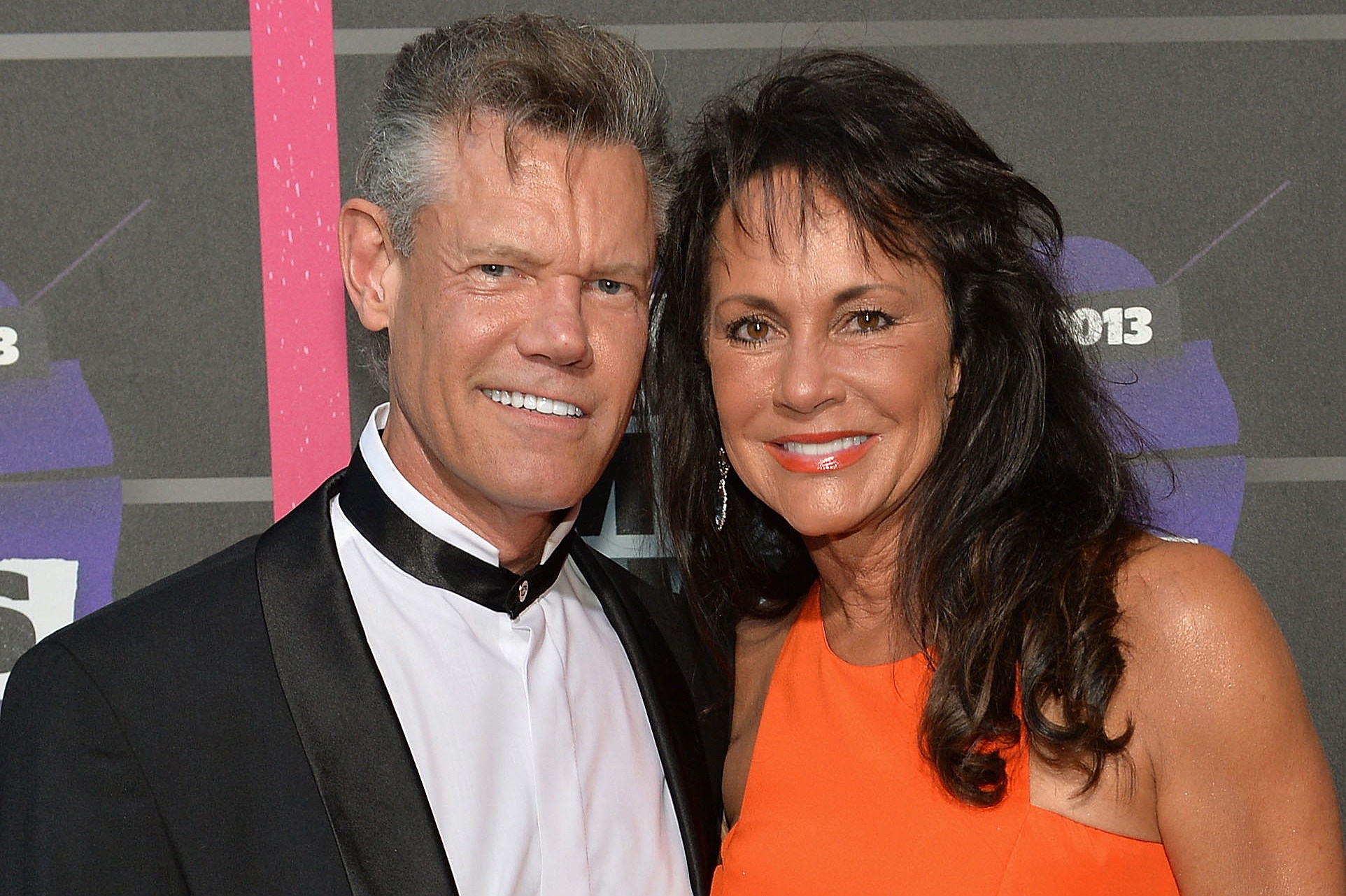Insights Into Ageism And Activism
Mary Beougher Age: Exploring the Concept of Ageism and Discrimination
Mary Beougher was an American civil rights activist who faced discrimination and prejudice due to her age. Throughout her life, she experienced ageism, a form of discrimination that occurs when people are treated differently based on their age. Ageism can manifest in various forms, including negative attitudes, stereotypes, and institutional barriers that limit opportunities for older adults. Mary Beougher Age highlights the importance of recognizing and addressing ageism to create a more equitable and inclusive society where individuals of all ages are valued and respected.
Mary Beougher's experiences underscore the need to challenge age-based assumptions and promote equal opportunities for all. By understanding the concept of ageism and its impact on individuals like Mary Beougher, we can work towards fostering a society that embraces diversity and celebrates the contributions of people of all ages.
Mary Beougher Age
Mary Beougher's experiences highlight the importance of understanding and addressing ageism. Here are eight key aspects related to "mary beougher age":
- Ageism: Discrimination based on age.
- Stereotypes: Negative assumptions about older adults.
- Barriers: Obstacles that limit opportunities for older adults.
- Civil Rights: The fight for equal rights for all, including older adults.
- Activism: Mary Beougher's lifelong dedication to fighting ageism.
- Inclusion: Creating a society where people of all ages are valued.
- Respect: Treating older adults with dignity and worth.
- Equity: Ensuring fair treatment and opportunities for all.
These aspects are interconnected and essential for understanding the impact of ageism on individuals and society as a whole. By recognizing and challenging age-based assumptions, we can work towards creating a more just and equitable world for people of all ages.
Mary Beougher: Personal Details and Bio Data
| Name: | Mary Beougher |
| Birth Date: | February 18, 1926 |
| Birth Place: | Lynchburg, Virginia |
| Occupation: | Civil rights activist |
| Known for: | Fighting ageism and discrimination against older adults |
| Awards: | Presidential Medal of Freedom (2016) |
Ageism
Ageism is a serious issue that affects millions of people around the world. It is a form of discrimination that occurs when people are treated differently based on their age. Ageism can manifest in many different ways, including negative attitudes, stereotypes, and institutional barriers that limit opportunities for older adults.
Mary Beougher was a civil rights activist who fought against ageism and discrimination throughout her life. She experienced ageism firsthand, and she saw how it affected the lives of other older adults. Beougher's work helped to raise awareness of ageism and to challenge the negative stereotypes that surround older people.
The connection between ageism and Mary Beougher's life is significant. Ageism was a major barrier that Beougher had to overcome in her fight for civil rights. She faced discrimination from both young and old people, and she was often told that she was too old to be effective. However, Beougher refused to give up, and she continued to fight for what she believed in. Beougher's story is an inspiration to us all, and it shows us that we can overcome any obstacle if we have the courage to stand up for what we believe in.
Stereotypes
Negative stereotypes about older adults are a significant part of "mary beougher age" because they can lead to discrimination and prejudice. Mary Beougher faced ageism throughout her life, and she saw how stereotypes limited opportunities for older adults. For example, older adults are often seen as being less competent, less productive, and less valuable than younger adults. These stereotypes can lead to older adults being passed over for jobs, promotions, and other opportunities.
Mary Beougher's work to challenge ageism helped to change the way that people think about older adults. She showed that older adults are just as capable and valuable as younger adults. Beougher's work has helped to create a more inclusive society for older adults.
Negative stereotypes about older adults can have a serious impact on their lives. They can lead to discrimination, prejudice, and social isolation. It is important to challenge these stereotypes and to recognize the value of older adults. We must work to create a more inclusive society where older adults are treated with respect and dignity.
Barriers
Barriers that limit opportunities for older adults are a significant part of "mary beougher age" because they can prevent older adults from participating fully in society. Mary Beougher faced many barriers throughout her life, including ageism, discrimination, and a lack of access to resources. Despite these barriers, Beougher was able to achieve great things. She was a successful civil rights activist, and she helped to improve the lives of older adults.
One of the most significant barriers that older adults face is ageism. Ageism is a form of discrimination that occurs when people are treated differently based on their age. Ageism can manifest in many different ways, including negative attitudes, stereotypes, and institutional barriers that limit opportunities for older adults.
Mary Beougher faced ageism throughout her life. She was often told that she was too old to be effective. However, Beougher refused to give up. She continued to fight for what she believed in, and she achieved great things.
Beougher's story is an inspiration to us all. It shows us that we can overcome any obstacle if we have the courage to stand up for what we believe in. We must work to create a more inclusive society for older adults, where they are treated with respect and dignity.
Civil Rights
The fight for civil rights has been a long and arduous one, and it is one that is still ongoing today. Older adults have faced discrimination and prejudice throughout history, and they continue to face these challenges today. Mary Beougher was a civil rights activist who dedicated her life to fighting for the rights of older adults. She was a tireless advocate for their rights to live with dignity and respect.
Beougher's work was instrumental in bringing about changes in the way that older adults are treated. She helped to pass the Age Discrimination in Employment Act of 1967, which prohibits discrimination against workers who are 40 years of age or older. She also helped to establish the National Council on Aging, which is a leading advocate for the rights of older adults.
Beougher's work has had a profound impact on the lives of older adults. She has helped to make it possible for them to live with dignity and respect. Her legacy is one that will continue to inspire activists for years to come.
Activism
Mary Beougher's activism was a driving force in the fight against ageism. She dedicated her life to fighting for the rights of older adults, and her work has had a profound impact on the lives of millions of people. Beougher's activism is an important part of "mary beougher age" because it highlights the power of activism and the importance of fighting for what you believe in.
- Advocacy: Beougher was a tireless advocate for the rights of older adults. She spoke out against ageism and discrimination, and she worked to change laws and policies that were unfair to older people.
- Education: Beougher was also a dedicated educator. She taught courses on aging and ageism, and she wrote extensively about the challenges that older adults face.
- Organizing: Beougher was a gifted organizer. She helped to found the National Council on Aging, and she worked with other organizations to fight for the rights of older adults.
- Mentoring: Beougher was a mentor to many younger activists. She shared her knowledge and experience with them, and she inspired them to continue the fight for justice.
Mary Beougher's activism made a real difference in the lives of older adults. She helped to change the way that people think about aging, and she made it possible for older adults to live with dignity and respect.
Inclusion
Inclusion is a fundamental aspect of "mary beougher age" because it represents the goal of creating a society where people of all ages are treated with respect and dignity. Mary Beougher dedicated her life to fighting for the rights of older adults, and she believed that everyone deserves to be valued, regardless of their age.
- Equal Opportunities: Inclusion means ensuring that people of all ages have equal opportunities to participate in society. This includes access to education, employment, healthcare, and social activities. Mary Beougher fought for policies that would make it easier for older adults to stay active and engaged in their communities.
- Challenging Stereotypes: Inclusion requires challenging the negative stereotypes that surround aging. Older adults are often seen as being less capable, less productive, and less valuable than younger adults. Mary Beougher worked to change these perceptions and to show the world that older adults have a lot to offer.
- Intergenerational Connections: Inclusion is about building bridges between people of all ages. It means creating opportunities for older adults to interact with younger people and share their knowledge and experience. Mary Beougher believed that intergenerational connections are essential for creating a more just and equitable society.
- Respect and Dignity: Inclusion means treating everyone with respect and dignity, regardless of their age. This means listening to older adults, valuing their opinions, and supporting their decisions. Mary Beougher fought for the rights of older adults to be treated with dignity and respect.
By creating a society where people of all ages are valued, we can create a more just and equitable world for everyone.
Respect
Respect is a fundamental aspect of "mary beougher age" because it is essential for creating a society where older adults are valued and treated with dignity. Mary Beougher dedicated her life to fighting for the rights of older adults, and she believed that everyone deserves to be treated with respect, regardless of their age.
There are many ways to show respect for older adults. One important way is to listen to them. Older adults have a wealth of knowledge and experience to share, and we can learn a lot from them if we take the time to listen. Another way to show respect for older adults is to value their opinions. Older adults have a different perspective on the world than younger people, and their opinions are valuable. We should always consider their opinions, even if we don't agree with them.
Finally, we can show respect for older adults by supporting their decisions. Older adults are capable of making their own decisions, and we should respect their choices. We should not try to control them or tell them what to do. Instead, we should support their decisions and help them to live their lives to the fullest.
Treating older adults with respect is not only the right thing to do, it is also beneficial for society as a whole. Older adults have a lot to offer our communities, and when we respect them, we create a more inclusive and vibrant society.
Equity
Equity is a fundamental principle of justice that ensures everyone has fair treatment and opportunities in life. It is closely linked to "mary beougher age" because Mary Beougher dedicated her life to fighting for the rights of older adults, and she believed that everyone deserves to be treated fairly and with dignity, regardless of their age.
One important aspect of equity is ensuring that everyone has equal access to resources and opportunities. This includes access to education, employment, healthcare, and social activities. Unfortunately, older adults often face barriers to accessing these resources and opportunities due to ageism and discrimination. For example, older adults may be passed over for jobs or promotions, or they may be denied access to healthcare or housing.
Mary Beougher fought to break down these barriers and ensure that older adults have the same opportunities as everyone else. She worked to pass laws that prohibit age discrimination, and she helped to establish programs that provide support and services to older adults. Her work has made a real difference in the lives of millions of older adults.
Equity is essential for creating a just and equitable society for all. When everyone has fair treatment and opportunities, we all benefit. We can create a more inclusive and vibrant society where everyone can reach their full potential.
FAQs on "Mary Beougher Age"
This section provides answers to frequently asked questions related to "mary beougher age," addressing common concerns and misconceptions about ageism and its impact on older adults.
Question 1: What is ageism?Ageism refers to discrimination or prejudice against individuals based on their age. It can manifest in various forms, including negative attitudes, stereotypes, and institutional barriers that limit opportunities for older adults.
Question 2: How did Mary Beougher contribute to the fight against ageism?Mary Beougher was a prominent civil rights activist who dedicated her life to combating ageism. She fought for equal rights and opportunities for older adults, advocating for policies and programs that promoted their well-being and dignity.
Question 3: What are some examples of ageism in everyday life?Ageism can subtly or overtly in various settings. For instance, older adults may face negative attitudes or assumptions about their abilities in the workplace, healthcare, or social interactions. They may also encounter age-related barriers in accessing services or participating in activities.
Question 4: Why is it important to address ageism?Addressing ageism is crucial for creating a more just and equitable society. It promotes the rights, dignity, and well-being of older adults, allowing them to live fulfilling and independent lives. Combating ageism also benefits society as a whole by valuing the contributions and experiences of older generations.
Question 5: What can individuals do to challenge ageism?Challenging ageism requires collective and individual efforts. Educate yourself and others about ageism, its impact, and ways to promote age-inclusive practices. Question ageist stereotypes and assumptions, and advocate for policies and initiatives that support the rights and well-being of older adults.
Question 6: What resources are available to learn more about ageism and Mary Beougher's work?Numerous resources provide in-depth information about ageism and Mary Beougher's legacy. Visit the websites of organizations like the National Council on Aging, the American Society on Aging, and the Mary Beougher Legacy Foundation to access reports, articles, and educational materials on these topics.
Understanding and addressing ageism is essential for fostering a society that values and respects individuals of all ages. Mary Beougher's life and work serve as an inspiration to continue the fight against ageism and create a more inclusive world.
Transition to the next article section:
Mary Beougher's legacy extends beyond her activism against ageism. Explore the following sections to delve deeper into her life's journey and its impact on various aspects of society.
Tips for Combating Ageism Inspired by "Mary Beougher Age"
Mary Beougher's dedication to fighting ageism provides valuable insights for individuals and society as a whole. Here are some practical tips inspired by her work to challenge ageism and promote inclusivity:
Tip 1: Educate Yourself and OthersLearn about ageism, its different forms, and its impact on individuals and society. Share your knowledge with others to raise awareness and foster a better understanding of age-related issues.Tip 2: Challenge Stereotypes and AssumptionsQuestion ageist beliefs and stereotypes that perpetuate negative perceptions of older adults. Promote positive images and narratives that showcase the diverse experiences and contributions of older generations.Tip 3: Promote Intergenerational ConnectionsFacilitate opportunities for meaningful interactions between individuals of different ages. Encourage collaboration, mentorship, and shared activities that bridge generational gaps and foster mutual respect.Tip 4: Advocate for Age-Inclusive Policies and PracticesSupport policies and initiatives that prohibit age discrimination in employment, healthcare, housing, and other areas. Encourage businesses and organizations to adopt age-friendly practices that promote the well-being and inclusion of older adults.Tip 5: Respect and Value Older AdultsTreat older adults with dignity and respect, regardless of their age or abilities. Listen to their experiences, value their opinions, and support their choices.Tip 6: Support Organizations Fighting AgeismJoin or donate to organizations dedicated to combating ageism and advocating for the rights of older adults. Participate in their initiatives and campaigns to raise awareness and drive positive change.Tip 7: Be an Ally to Older AdultsOffer assistance to older adults in your community or workplace. Be a voice for their concerns and advocate for their needs. Create a supportive environment where older adults feel valued and respected.Tip 8: Celebrate Aging Recognize and celebrate the contributions and wisdom of older adults.* Challenge the negative societal views of aging and promote a more positive and inclusive narrative.Incorporating these tips into our daily lives and interactions can create a more age-inclusive society. By valuing, respecting, and empowering older adults, we not only honor their contributions but also enrich our own lives and communities.Conclusion:
Combating ageism is a collective responsibility. Inspired by Mary Beougher's legacy, let us all strive to create a society where individuals of all ages are treated with dignity, respect, and equal opportunities.Conclusion
The exploration of "mary beougher age" has illuminated the multifaceted nature of ageism and its profound impact on individuals and society. Mary Beougher's unwavering activism serves as a beacon, guiding us toward a future free from age-based discrimination and prejudice.
Her legacy compels us to challenge ageist stereotypes, advocate for equitable opportunities, and promote intergenerational solidarity. By embracing inclusivity and respecting the contributions of all, we can create a society that values and empowers individuals of all ages. Mary Beougher's indomitable spirit inspires us to continue the fight against ageism, ensuring that future generations inherit a world where dignity, respect, and equality prevail.
Unveiling The Enigma: Uncovering The Age Of Max Holloway's Wife
Unveiling The Enigma: Is Trent Alexander-Arnold A Devout Muslim?
Unveiling The Secrets Of Joanne Shaw Taylor's Marital Journey



ncG1vNJzZmiclaXBqYCNmqSsa16Ztqi105qjqJuVlru0vMCcnKxmk6S6cLnAq7BmmpWkwqi0xKtkmp%2BVY7W1ucs%3D